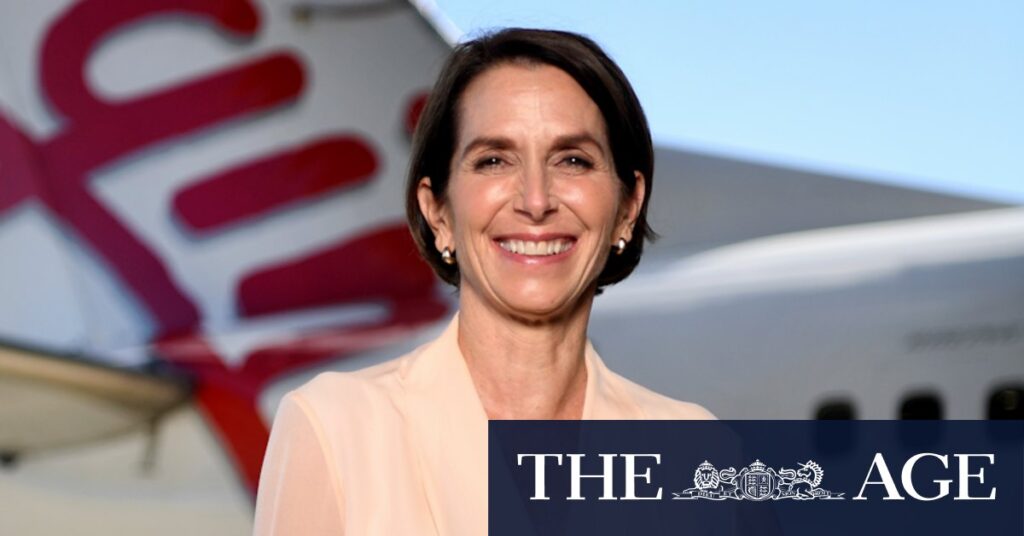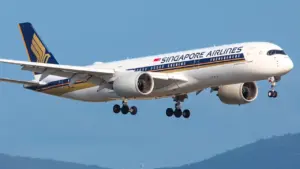
Virgin Australia’s former chief executive, Jayne Hrdlicka, has left the airline with a substantial financial package exceeding $50 million. This revelation, detailed in the group’s annual report released on Friday, has sparked considerable debate within the aviation industry and beyond.
Hrdlicka, who took the helm of Virgin Australia shortly after its financial collapse in 2020 due to the pandemic, stepped down in March, just months before the airline’s successful relisting on the Australian Securities Exchange (ASX) in June. Her departure package includes cash payments exceeding $20 million, with $18.4 million earmarked as short-term incentives payable this month. Additionally, she received 10.244 million shares as part of a 2021 management equity plan, valued at $29.7 million during the airline’s public float, now worth approximately $33 million.
Industry Reactions and Comparisons
The payout has been met with criticism from various quarters, including the Transport Workers’ Union. Michael Kaine, the union’s national secretary, expressed outrage, stating,
“What is eye-watering to the average aviation worker, as well as the Australian public, is the near-$50 million pay packet now handed out to former CEO Jayne Hrdlicka. We cannot continue to see CEOs and executives in aviation pocket obscene salaries while the industry is at breaking point.”
In stark contrast, other airline executives have received significantly lower compensation. Cathay Pacific’s chief executive, Ronald Lam Siu-por, earned $HK14.15 million ($2.76 million), including bonuses, last year. Similarly, British Airways’ Sean Doyle received £1.5 million ($3 million) in remuneration for 2022/23, while Singapore Airlines’ Goh Choon Phong was paid $S7 million ($8.2 million) for the latest financial year.
The Role of Private Equity and Future Implications
Hrdlicka’s lucrative incentives are typical of the bonuses offered by private equity owners like Bain Capital, which rescued Virgin Australia from administration and reduced its stake during the public sale. Her shares remain subject to escrow conditions, with release scheduled between February next year and August 2027.
Despite her significant contributions, including leading the airline out of voluntary administration and forging a strategic partnership with Qatar Airways, Hrdlicka was notably absent from acknowledgments in the annual report’s letter to shareholders by chairman Peter Warne and her successor, Dave Emerson. The report, however, credits her with transforming Virgin Australia into a profitable and sustainable business.
Comparative Analysis with Qantas
Hrdlicka’s departure contrasts sharply with that of her former boss at Qantas, Alan Joyce. Following a board-commissioned review, the Qantas board docked over $9 million from Joyce’s final pay for the 2024 financial year. He received $15 million for his last year at the helm, alongside an additional $3.8 million in shares last year.
New Challenges Ahead
Moving forward, Hrdlicka is set to take on a new challenge as the chief executive of Endeavour, a major player in the liquor, pubs, and pokies industry. Her appointment, announced a month after leaving Virgin, follows the sudden resignation of Endeavour’s executive chairman, Ari Mervis, due to a boardroom disagreement. Hrdlicka is scheduled to begin her role in January, with a compensation package including a $2 million annual salary, up to $3 million in short-term bonuses, and $4 million in long-term incentives.
As the aviation industry continues to navigate post-pandemic challenges, the debate over executive compensation remains a contentious issue, raising questions about equity and sustainability in corporate governance.







